
The Grand Army of the Republic (GAR) was a fraternal organization composed of veterans of the Union Army, Union Navy, and the Marines who served in the American Civil War. It was founded in 1866 in Decatur, Illinois, and grew to include hundreds of "posts" across the North and West. It was dissolved in 1956 at the death of its last member, Albert Woolson.

The Daughters of the American Revolution (DAR) is a lineage-based membership service organization for women who are directly descended from a person involved in the United States' struggle for independence. A non-profit group, they promote education and patriotism. The organization's membership is limited to direct lineal descendants of soldiers or others of the Revolutionary period who aided the cause of independence; applicants must have reached 18 years of age and are reviewed at the chapter level for admission. The DAR has over 185,000 current members in the United States and other countries. Its motto is "God, Home, and Country".
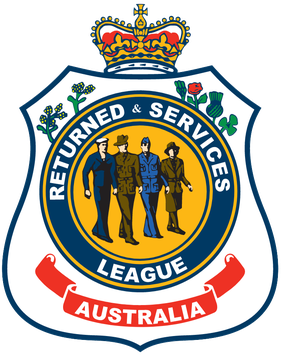
The Returned and Services League of Australia (RSL) is a support organisation for people who have served or are serving in the Australian Defence Force.

The American Legion, commonly known as the Legion, is a non-profit organization of U.S. war veterans headquartered in Indianapolis, Indiana. It comprises state, U.S. territory, and overseas departments, in turn, made up of local posts. The organization was formed on March 15, 1919, in Paris, France, by a thousand officers and men of the American Expeditionary Forces, and it was chartered on September 16, 1919, by the United States Congress.

A veteran is a person who has significant experience and expertise in an occupation or field. A military veteran is a person who is no longer in a military.

Mary Ann Bickerdyke, also known as Mother Bickerdyke, was a hospital administrator for Union soldiers during the American Civil War and a lifelong advocate for veterans. She was responsible for establishing 300 field hospitals during the war and served as a lawyer assisting veterans and their families with obtaining pensions after the war.

The Royal Canadian Legion is a non-profit Canadian veterans' organization founded in 1925. Members includes people who served in the military, Royal Canadian Mounted Police, provincial or municipal police, Royal Canadian Air, Army and Sea Cadets and direct relatives.
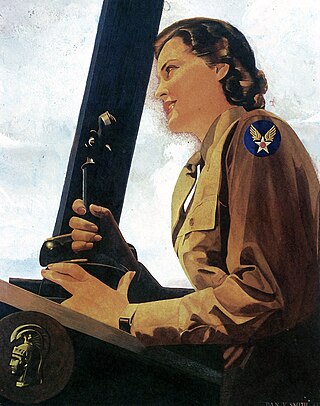
The Women's Army Corps (WAC) was the women's branch of the United States Army. It was created as an auxiliary unit, the Women's Army Auxiliary Corps (WAAC) on 15 May 1942 and converted to an active duty status in the Army of the United States as the WAC on 1 July 1943. Its first director was Colonel Oveta Culp Hobby. The WAC was disbanded in 1978, and all units were integrated with male units.
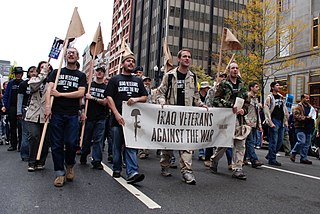
Iraq Veterans Against the War (IVAW) is an advocacy group of formerly active-duty United States military personnel, Iraq War veterans, Afghanistan War veterans, and other veterans who have served since the September 11, 2001 attacks; who were opposed to the U.S. military invasion and occupation in Iraq from 2003 to 2011. The organization advocated the immediate withdrawal of all coalition forces in Iraq, and reparations paid to the Iraqi people. It also provides support services for returning veterans to include health care and mental health.
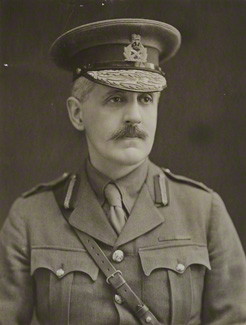
Major-General Sir Fabian Arthur Goulstone Ware was a British educator, journalist, and the founder of the Imperial War Graves Commission (IWGC), now the Commonwealth War Graves Commission (CWGC). He also served as Director of Education for the Transvaal Colony and editor of The Morning Post.
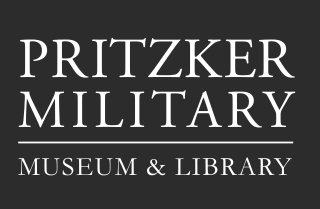
The Pritzker Military Museum & Library is a non-profit museum and a research library for the study of military history on Michigan Avenue in Chicago, Illinois. The institution was founded in 2003, and its specialist collections include material relating to Winston Churchill and war-related sheet music.

The Jewish War Veterans of the United States of America is an American Jewish veterans' organization created in 1896 by American Civil War veterans to raise awareness of contributions made by Jewish servicemembers. It has an estimated 15,000 members, ranging from World War II to current conflicts and active duty personnel. It is the oldest active national veterans' service organization in America.
The Veterans History Project of the Library of Congress American Folklife Center was created by the United States Congress in 2000 to collect and preserve the firsthand remembrances of U.S. wartime veterans. Its mandate ensures future generations may hear directly from those who served to better understand the realities of war. It is a special project of the American Folklife Center, a research center of the Library of Congress.
Canadian women in the World Wars became indispensable because the World Wars were total wars that required the maximum effort of the civilian population. While Canadians were deeply divided on the issue of conscription for men, there was wide agreement that women had important new roles to play in the home, in civic life, in industry, in nursing, and even in military uniforms. Historians debate whether there was much long-term impact on the postwar roles of women.

World War I marked the first war in which American women were allowed to enlist in the armed forces. While thousands of women did join branches of the army in an official capacity, receiving veterans status and benefits after the war's close, the majority of female involvement was done through voluntary organizations of the war effort or through becoming a nurse for the military. Additionally, women made an impact on the war indirectly by filling the workforce, becoming employed in the jobs left behind by male soldiers.

Harriet Ware was an American composer, pianist, and music educator.

Margaret McFadden was an American community leader, prominent in philanthropic, church, and women's organizations. She served as president of the Minnesota Public Health Association, and the Guild of Catholic Women, the latter being one of the leading and most powerful religious organizations in the region where she lived. She was also involved in charitable work to improve the lives of veterans and the poor.

Amy Robbins Ware was an American author, world court worker, peace activist, and clubwoman. During World War I, she served in various capacities for the American Red Cross and the American Expeditionary Forces in France. As a member of the Red Cross, she saw duty in a canteen near the frontlines in the days of the last drive just before the armistice of 11 November 1918 was signed. She was also connected with the army college at Savenay. Ware wrote of her war experience, in prose and verse, in Echoes of France (1920). In 1925, as chair of the department of international cooperation for the Minnesota Federation of Women's Clubs, Ware set in motion the efforts of 50,000 club women of the state to consider the question of international cooperation, her hope being that women may keep informed as to the rapidly changing conditions of the world and be ready to lend aid to further the kind of international cooperation that will bring about permanent world peace.
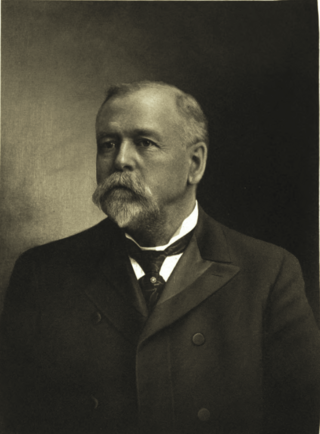
Andrew Bonney Robbins was an American entrepreneur, civil war veteran, and real estate developer in the pioneer period of Minneapolis. The town of Robbinsdale, Minnesota is named in his honor. At the age of 30, he was elected to the state senate, being the youngest member of that body at the time.
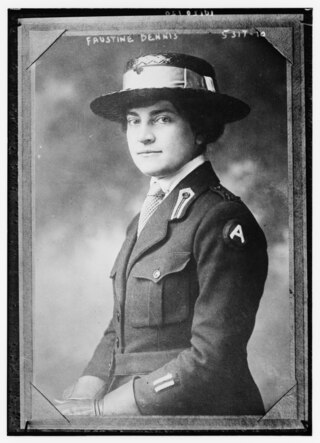
Faustine Dennis was an American librarian who worked at the Library of Congress from 1921 to 1950. She volunteered for service during World War I and World War II. She was president of the Women's Overseas Service League from 1933 to 1935, and was state regent of the Daughters of the American Revolution for the District of Columbia in the 1950s.


















